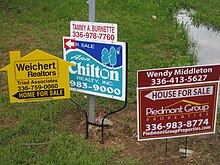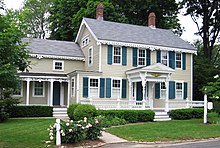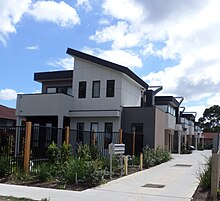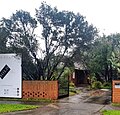
Okay, so youre thinking of purchasing a home in Pleasanton in 2025? Pleasanton: First-Time Home Buyer Realtor Guide . Smart move! Pleasantons a superb location, yet allows be genuine, navigating the real estate market can seem like trying to check out old hieroglyphics. So, allows take a peek at what 2025 might hold for you, striving Pleasanton homeowner.
Think of the 2025 market as a balancing act. Rates of interest, the total economic climate, and the variety of homes actually readily available are all managing each various other. Today, its challenging to say specifically where points will land. Some professionals are forecasting a minor air conditioning, indicating even more homes on the marketplace and maybe a little less competitors. Others assume demand will keep points quite warmed, especially thinking about Pleasantons preferable location and outstanding schools.
The vital takeaway is this: understanding is power. Partnering with a neighborhood Pleasanton realtor is important. Theyre on the ground, seeing the fads as they create, and can give you real-time understandings that no online article can offer. Theyll learn about promising neighborhoods, brand-new developments, and even murmurs concerning residential or commercial properties that may be hitting the marketplace quickly.
Your 2025 home getting guide come down to this: do your research. Recognize your spending plan, get pre-approved for a mortgage, and most importantly, discover a realtor that understands Pleasanton throughout. Theyll be your guide, your supporter, and your sanity-saver in what can be a wild experience. Good luck, and welcome to Pleasanton (hopefully)!
Okay, so youre dreaming of Pleasanton in 2025, imagining on your own clearing up right into that best home. Wonderful! But prior to you obtain also swept up in paint colors and yard barbecues, lets speak about the unglamorous, but definitely important, things: your spending plan and how youre mosting likely to spend for it all.
Think about your budget as your personal compass, directing you toward a home you can comfortably afford. Its not almost just how much you desire to spend, however just how much you can invest without stressing on your own out. Start by truthfully assessing your income, your regular monthly expenditures (everything from rent to Netflix!), and any type of arrearages. Factor in things that may change-- a potential raising, a new automobile repayment, even childcare prices if youre preparation for a family members. There are lots of cost-free online budgeting tools and apps that can aid you get a clear image of your economic landscape.
Once you have an excellent deal with on your budget plan, its time to discover funding choices. Home loans are one of the most usual way to get a home, but understanding the various types is vital. Are you considering a fixed-rate mortgage for security, or a variable-rate mortgage that might use lower preliminary payments? What regarding government-backed financings like FHA or VA, which can be fantastic options relying on your circumstance? Don't forget to search! Talk with different lending institutions, compare rates of interest, and pay attention to fees and closing costs. Obtaining pre-approved for a mortgage is a smart action; it reveals vendors youre major and gives you a sensible idea of just how much you can obtain.
And remember, getting a home isn't nearly the mortgage repayment. Factor in property taxes, homeowners insurance, prospective HOA costs, and the cost of maintenance and repairs. It adds up!
Browsing the world of budget plans and funding can really feel overwhelming, however do not hesitate to ask for help. A great Realtor in Pleasanton (like the one youre hoping to find!) can connect you with trusted monetary consultants who can lead you via the process and help you make informed decisions. Eventually, recognizing your budget and exploring your financing choices is the structure for a successful and worry-free home getting experience in Pleasanton in 2025. So, do your homework, be practical, and get ready to make your Pleasanton desire a truth!
Okay, so youre thinking about Pleasanton, The golden state in 2025? Amazing! Its a great place, but discovering the right area there is vital to genuinely loving where you live. Its not a one-size-fits-all kind of thing, you know?
Think about whats vital to you . Got youngsters? After that neighborhood schools are most likely leading of your list. Some locations in Pleasanton boast highly-rated elementary, middle, and high schools, like those zoned for Amador Valley High. Youll most likely pay a premium to be in those zones, but also for several families, its worth every cent.
Perhaps schools aren't a huge deal. Perhaps you long for that walkable, midtown vibe. Imagine strolling to coffeehouse, restaurants, and the regular farmers market.

After that theres the neighborhood feeling. Some areas are known for their strong feeling of belonging, with block parties and dense connections. Others are a bit extra personal and expanded. Consider what type of social atmosphere youre seeking.
Dont forget about lifestyle! Do you dream of a vast lawn with a pool? Or are you happy with a low-maintenance condominium? Pleasanton uses every little thing from equestrian estates to modern-day townhouses. Consider just how you intend to invest your downtime and select an area that supports that.
Ultimately, and allows be honest, this is substantial: budget plan. Pleasanton is pricey. Different neighborhoods have different cost factors. Be sensible regarding what you can manage and collaborate with a local Pleasanton realtor (like the ones this overview is all about!) to narrow down your choices. Theyll have the within scoop on upcoming listings and can help you navigate the marketplace.
Discovering the right neighborhood isn't just about discovering a house. Its concerning discovering your place in Pleasanton. Do your research study, consider your concerns, and prepare to fall for your brand-new community. Moving to Pleasanton Realtor – The welcome mat is already out.
Okay, so youre considering purchasing a home in Pleasanton in 2025? Awesome! Its a wonderful place to live. However browsing the real estate market, specifically in a competitive location like Pleasanton, can really feel a bit like attempting to put together IKEA furnishings without the guidelines. Thats where a great Realtor can be found in. Think about them as your specialist overview, translator, and negotiator all rolled into one.
When you companion with a Pleasanton Realtor, expect them to be deeply knowledgeable about the neighborhood market. They ought to understand the neighborhoods like the rear of their hand-- the institution areas, commute times, community feelings, the whole shebang. Theyll be able to provide you sensible expectations regarding rates, based not just on the overall market, but on the details attributes and location youre trying to find.
Past market knowledge, expect them to really listen to what you want. Its not just about square video and variety of bed rooms. Its regarding your way of life, your concerns, and your long-lasting objectives. A good Realtor will ask the appropriate concerns to recognize your demands and aid you define what youre really searching for in a home.
After that comes the enjoyable component-- the search! Expect your Realtor to proactively discover properties that fit your criteria, also ones that aren't commonly promoted. Theyll routine provings, stroll you through the homes, mention prospective pitfalls, and assist you envision on your own living there.
When you discover "" the one,"" anticipate them to be your supporter. Theyll aid you craft an affordable deal, discuss with the seller (or their representative), and guide you with the hill of paperwork. Theyll additionally attach you with various other important gamers, like loan providers, inspectors, and contractors, making the entire procedure smoother.
Lastly, expect your Realtor to be there for you also after you close the deal. They can be a useful source for recommendations for local services, specialists, and anything else you may require as you clear up into your new home. Basically, dealing with a Pleasanton Realtor in 2025 ways having actually a trusted companion that understands the regional market and is dedicated to aiding you discover the perfect area to call home. Its a financial investment in a smoother, less demanding, and ultimately a lot more successful home acquiring journey.
Okay, so youre thinking about buying a home in Pleasanton in 2025? Incredible! Its a big action, and lets be straightforward, it can seem like browsing a maze. But do not stress, it does not have to be frustrating. Consider this as your pleasant overview to making sense of all of it.
Things is, getting a home in 2025 isn't mosting likely to be exactly the same as it was, claim, 5 years ago. The markets constantly moving, and innovation maintains transforming the game. Rate of interest might look a little different, the stock of homes readily available can fluctuate, and exactly how you even find those homes may include some new tools and strategies.
Thats where comprehending the existing landscape can be found in.

Yet its not practically the numbers and the patterns. Its regarding you . What are your priorities? What type of way of life are you trying to find? What are your must-haves in a home? Recognizing your own demands and needs is the foundation for an effective home acquiring trip.
So, distort up! Well explore the ins and outs of obtaining pre-approved for a mortgage, searching for properties in a smarter way (believe virtual trips and AI-powered search tools), and making competitive offers that stand out. Well likewise speak about browsing the closing process with confidence.
Consider this your starting point for a smoother, a lot more notified, and ultimately more gratifying home buying experience in Pleasanton in 2025. Lets make your imagine homeownership a fact.
Okay, so youre considering purchasing a home in Pleasanton in 2025? Smart move! Its a fantastic area to live. However prior to you begin picturing on your own drinking coffee on your brand-new patio, allows speak about 2 critical actions you definitely cant miss: the home inspection and the appraisal.
Think about the home inspection as your investigator work. Youre employing an expert to thoroughly explore the house, from the roofing to the structure. Theyll seek prospective issues like dripping pipes, defective wiring, parasite infestations, or architectural issues. This isn't concerning quibbling paint shades; its concerning uncovering concealed problems that could cost you a fortune down the road. The inspectors report provides you leverage. You can ask the seller to deal with certain problems, discuss a lower price, or perhaps walk away from the deal if the troubles are as well substantial. Its peace of mind wrapped up in a thorough report.
Now, the appraisal is different. While the examination secures you , the appraisal primarily protects the loan provider . The lender wants to make certain the house is in fact worth the amount of cash theyre lending you. An appraiser will assess the residential properties value based upon its problem, location, dimension, and current sales of comparable homes in the Pleasanton location. If the appraisal comes in lower than the agreed-upon acquisition cost, youll most likely need to renegotiate with the seller, come up with the difference in cash, or potentially discover another property.
Both the evaluation and the appraisal are important for a smooth and effective home buying experience in Pleasanton. Theyre financial investments in your future joy and monetary safety. Don't attempt to cut edges below. Working with skilled specialists who recognize the Pleasanton market is crucial to making notified choices and preventing expensive shocks. Good luck with your house hunt!
Okay, so youve found the home in Pleasanton you absolutely love. Congratulations! Yet the excitement shouldnt overshadow the critical steps of in fact closing the deal and moving in. Think of it as the last lap of a marathon-- youre close, however you need to stay focused to cross the goal strong.
"" Closing the Deal"" in 2025, despite potentially upgraded tech and processes, still comes down to mindful negotiation and careful documentation. Your Realtor is your MVP here. Theyll guide you via the counter-offer dancings, ensuring youre getting the best feasible cost and terms. Pay attention to contingencies-- examinations, financing, appraisal-- and ensure you recognize the implications of each. Do not be afraid to ask inquiries, no matter exactly how silly they might seem. Its a big financial investment, and clarity is crucial.
When the closing date is established, the actual enjoyable (and anxiety!) starts-- "Relocating."" Begin intending well ahead of time. Schedule movers early, specifically if youre planning a step throughout peak period. Begin packaging systematically, classifying boxes plainly, and decluttering as you go. Consider setting up utilities and net solutions well prior to your move-in date. Theres absolutely nothing even worse than coming to your brand-new home to discover you have no electrical power or Wi-Fi!
Lastly, keep in mind to take a breath. Relocating is disorderly, however its additionally the beginning of a brand-new chapter. Take points one step at a time, lean on your Realtor for assistance, and welcome the journey of making your new Pleasanton house a home.

|
|
This article possibly contains original research. (July 2014)
|

Real estate agents and real estate brokers are people who represent sellers or buyers of real estate or real property. While a broker may work independently, an agent usually works under a licensed broker to represent clients.[1] Brokers and agents are licensed by the state to negotiate sales agreements and manage the documentation required for closing real estate transactions.
A real estate broker typically receives a real estate commission for successfully completing a sale. Across the U.S, this commission can generally range between 5-6% of the property's sale price for a full-service broker but this percentage varies by state and even region.[2]
In most jurisdictions in the United States, a person must have a license to perform licensed activities, and these activities are defined within the statutes of each state. The main feature of the requirement for having a license to perform those activities is the work done "for compensation". Hence, hypothetically, if a person wants to help a friend out in either selling or buying a property, and no compensation of any kind is expected in return, then a license is not needed to perform all the work. However, since most people would expect to be compensated for their efforts and skills, a license would be required by law before a person may receive remuneration for services rendered as a real estate broker or agent. Unlicensed activity is illegal and the state real estate commission has the authority to fine people who are acting as real estate licensees, but buyers and sellers acting as principals in the sale or purchase of real estate are usually not required to be licensed. It is important to note that in some states, lawyers handle real estate sales for compensation without being licensed as brokers or agents. However, even lawyers can only perform real estate activities that are incidental to their original work as a lawyer. It cannot be the case that a lawyer can become a seller's selling agent if that is all the service that is being requested by the client. Lawyers would still need to be licensed as a broker if they wish to perform licensed activities. Nevertheless, lawyers do get a break in the minimum education requirements (for example, 90 hours in Illinois).[3]
Some other states have recently eliminated the salesperson's license, instead, all licensees in those states automatically earn their broker's license.
The term "agent" is not to be confused with salesperson or broker. An agent is simply a licensee that has entered into an agency relationship with a client. A broker can also be an agent for a client. It is commonly the firm that has the actual legal relationship with the client through one of their sales staff, be they salespersons or brokers.
In all states, the real estate licensee must disclose to prospective buyers and sellers the nature of their relationship [4]
Some U.S. state real estate commissions – notably Florida's[5] after 1992 (and extended in 2003) and Colorado's[6] after 1994 (with changes in 2003) created the option of having no agency or fiduciary relationship between brokers and sellers or buyers.
As noted by the South Broward Board of Realtors, Inc. in a letter to State of Florida legislative committees:
"The Transaction Broker crafts a transaction by bringing a willing buyer and a willing seller together and provides the legal documentation of the details of the legal agreement between the same. The Transaction Broker is not a fiduciary of any party, but must abide by the law as well as professional and ethical standards." (such as NAR Code of Ethics).
The result was that, in 2003, Florida created a system where the default brokerage relationship had "all licensees ... operating as transaction brokers, unless a single agent or no brokerage relationship is established, in writing, with the customer"[7][8] and the statute required written disclosure of the transaction brokerage relationship to the buyer or seller customer only through July 1, 2008.
In the case of both Florida[8] and Colorado,[6] dual agency and sub-agency (where both listing and selling agents represent the seller) no longer exist.
Other brokers and agents may focus on representing buyers or tenants in a real estate transaction. However, licensing as a broker or salesperson authorizes the licensee to legally represent parties on either side of a transaction and providing the necessary documentation for the legal transfer of real property. This business decision is for the licensee to decide. They are fines for people acting as real estate agents when not licensed by the state.
In the United Kingdom, an estate agent is a person or business entity whose business is to market real estate on behalf of clients. There are significant differences between the actions, powers, obligations, and liabilities of brokers and estate agents in each country, as different countries take markedly different approaches to the marketing and selling of real property.
Before the Multiple Listing Service (MLS) was introduced in 1967, when brokers (and their licensees) only represented sellers by providing a service to provide legal documentation on the transfer real property, the term "real estate salesperson" may have been more appropriate than it is today, given the various ways that brokers and licensees now help buyers through the legal process of transferring real property. Legally, however, the term "salesperson" is still used in many states to describe a real estate licensee.[citation needed]
After gaining some years of experience in real estate sales, a salesperson may decide to become licensed as a real estate broker (or Principal/qualifying broker) in order to own, manage, or operate their own brokerage. In addition, some states allow college graduates to apply for a broker's license without years of experience. College graduates fall into this category once they have completed the state-required courses as well. California allows licensed attorneys to become brokers upon passing the broker exam without having to take the requisite courses required of an agent. Commonly more coursework and a broker's state exam on real estate law must be passed. Upon obtaining a broker's license, a real estate agent may continue to work for another broker in a similar capacity as before (often referred to as a broker associate or associate broker) or take charge of their own brokerage and hire other salespersons (or broker licensees). Becoming a branch office manager may or may not require a broker's license. Some states allow licensed attorneys to become real estate brokers without taking any exam. In some states, there are no "salespeople" as all licensees are brokers.[9]
Real Estate Services are also called trading services [10]
Flat-fee real estate agents charge a seller of a property a flat fee, $500 for example,[11] as opposed to a traditional or full-service real estate agent who charges a percentage of the sale price. In exchange, the seller's property will appear in the multiple listing service (MLS), but the seller will represent him or herself when showing the property and negotiating a sales price.[11] The result is the seller pays less commission overall (roughly half) when the property sells.[11] This is because a seller will pay a percentage of the sales price to a buyer's agent but not have to pay a percentage to a seller's agent (because there isn't one; the seller is representing himself).
In consideration of the brokerage successfully finding a buyer for the property, a broker anticipates receiving a commission for the services the brokerage has provided. Usually, the payment of a commission to the brokerage is contingent upon finding a buyer for the real estate, the successful negotiation of a purchase contract between the buyer and seller, or the settlement of the transaction and the exchange of money between buyer and seller. Under common law, a real estate broker is eligible to receive their commission, regardless of whether the sale actually takes place, once they secure a buyer who is ready, willing, and able to purchase the dwelling.[12]
Economist Steven D. Levitt famously argued in his 2005 book Freakonomics that real estate brokers have an inherent conflict of interest with the sellers they represent because their commission gives them more motivation to sell quickly than to sell at a higher price. Levitt supported his argument with a study finding brokers tend to put their own houses on the market for longer and receive higher prices for them compared to when working for their clients. He concluded that broker commissions will reduce in future.[13] A 2008 study by other economists found that when comparing brokerage without listing services, brokerage significantly reduced the average sale price.[14]
Real estate brokers who work with lenders can not receive any compensation from the lender for referring a residential client to a specific lender. To do so would be a violation of a United States federal law known as the Real Estate Settlement Procedures Act (RESPA). RESPA ensures that buyers and sellers are given adequate notice of the Real Estate settlement process.[15]
In the United States, the term realtor is trademarked by the National Association of Realtors, which uses it to refer to its active members, who may be real estate agents or brokers.[16][17][18] In Canada, the trademark is used by members of the Canadian Real Estate Association.[19] Both organizations advise against the use of realtor as a generic synonym for real estate agent.[19]
States issue licenses for an annual or multi-year period and require real estate agents and brokers to complete continuing education prior to renewing their licenses. For example, California licensees must complete 45 hours of continuing education every 4 years in topics such as agency, trust fund handling, consumer protection, fair housing, ethics, and risk management.[20]
Several notable groups exist to promote the real estate industry and to assist professionals.
|
|
The examples and perspective in this article may not represent a worldwide view of the subject. (March 2023)
|
| Property law |
|---|
 |
| Part of the common law series |
| Types |
|
| Acquisition |
|
| Estates in land |
|
| Conveyancing |
|
| Future use control |
|
| Nonpossessory interest |
|
| Related topics |
|
| Other common law areas |
Higher category: Law and Common law |
Real estate is property consisting of land and the buildings on it, along with its natural resources such as growing crops (e.g. timber), minerals or water, and wild animals; immovable property of this nature; an interest vested in this (also) an item of real property, (more generally) buildings or housing in general.[1][2] In terms of law, real relates to land property and is different from personal property, while estate means the "interest" a person has in that land property.[3]
Real estate is different from personal property, which is not permanently attached to the land (or comes with the land), such as vehicles, boats, jewelry, furniture, tools, and the rolling stock of a farm and farm animals.
In the United States, the transfer, owning, or acquisition of real estate can be through business corporations, individuals, nonprofit corporations, fiduciaries, or any legal entity as seen within the law of each U.S. state.[3]
The natural right of a person to own property as a concept can be seen as having roots in Roman law as well as Greek philosophy.[4] The profession of appraisal can be seen as beginning in England during the 1500s, as agricultural needs required land clearing and land preparation. Textbooks on the subject of surveying began to be written and the term "surveying" was used in England, while the term "appraising" was more used in North America.[5] Natural law which can be seen as "universal law" was discussed among writers of the 15th and 16th century as it pertained to "property theory" and the inter-state relations dealing with foreign investments and the protection of citizens private property abroad. Natural law can be seen as having an influence in Emerich de Vattel's 1758 treatise The Law of Nations which conceptualized the idea of private property.[6]
One of the largest initial real estate deals in history known as the "Louisiana Purchase" happened in 1803 when the Louisiana Purchase Treaty was signed. This treaty paved the way for western expansion and made the U.S. the owners of the "Louisiana Territory" as the land was bought from France for fifteen million dollars, making each acre roughly 4 cents.[7] The oldest real estate brokerage firm was established in 1855 in Chicago, Illinois, and was initially known as "L. D. Olmsted & Co." but is now known as "Baird & Warner".[8] In 1908, the National Association of Realtors was founded in Chicago and in 1916, the name was changed to the National Association of Real Estate Boards and this was also when the term "realtor" was coined to identify real estate professionals.[9]
The stock market crash of 1929 and the Great Depression in the U.S. caused a major drop in real estate worth and prices and ultimately resulted in depreciation of 50% for the four years after 1929.[10] Housing financing in the U.S. was greatly affected by the Banking Act of 1933 and the National Housing Act in 1934 because it allowed for mortgage insurance for home buyers and this system was implemented by the Federal Deposit Insurance as well as the Federal Housing Administration.[11] In 1938, an amendment was made to the National Housing Act and Fannie Mae, a government agency, was established to serve as a secondary market for mortgages and to give lenders more money in order for new homes to be funded.[12]
Title VIII of the Civil Rights Act in the U.S., which is also known as the Fair Housing Act, was put into place in 1968 and dealt with the incorporation of African Americans into neighborhoods as the issues of discrimination were analyzed with the renting, buying, and financing of homes.[13] Internet real estate as a concept began with the first appearance of real estate platforms on the World Wide Web (www) and occurred in 1999.
Residential real estate may contain either a single family or multifamily structure that is available for occupation or for non-business purposes.[14]
Residences can be classified by and how they are connected to neighbouring residences and land. Different types of housing tenure can be used for the same physical type. For example, connected residences might be owned by a single entity and leased out, or owned separately with an agreement covering the relationship between units and common areas and concerns.[15]
According to the Congressional Research Service, in 2021, 65% of homes in the U.S. are owned by the occupier.[16]


Other categories
The size of havelis and chawls is measured in Gaz (square yards), Quila, Marla, Beegha, and acre.
See List of house types for a complete listing of housing types and layouts, real estate trends for shifts in the market, and house or home for more general information.
Real estate can be valued or devalued based on the amount of environmental degradation that has occurred. Environmental degradation can cause extreme health and safety risks. There is a growing demand for the use of site assessments (ESAs) when valuing a property for both private and commercial real estate.[17]
Environmental surveying is made possible by environmental surveyors who examine the environmental factors present within the development of real estate as well as the impacts that development and real estate has on the environment.
Green development is a concept that has grown since the 1970s with the environmental movement and the World Commission on Environment and Development. Green development examines social and environmental impacts with real estate and building. There are 3 areas of focus, being the environmental responsiveness, resource efficiency, and the sensitivity of cultural and societal aspects. Examples of Green development are green infrastructure, LEED, conservation development, and sustainability developments.
Real estate in itself has been measured as a contributing factor to the rise in green house gases. According to the International Energy Agency, real estate in 2019 was responsible for 39 percent of total emissions worldwide and 11 percent of those emissions were due to the manufacturing of materials used in buildings.[18]
| Part of a series on |
| Living spaces |
|---|
 |


Real estate development involves planning and coordinating of housebuilding, real estate construction or renovation projects.[19] Real estate development can be less cyclical than real estate investing.[20]
In markets where land and building prices are rising, real estate is often purchased as an investment, whether or not the owner intends to use the property. Often investment properties are rented out, but "flipping" involves quickly reselling a property, sometimes taking advantage of arbitrage or quickly rising value, and sometimes after repairs are made that substantially raise the value of the property. Luxury real estate is sometimes used as a way to store value, especially by wealthy foreigners, without any particular attempt to rent it out. Some luxury units in London and New York City have been used as a way for corrupt foreign government officials and business people from countries without strong rule of law to launder money or to protect it from seizure.[21] Investment in real estate can be categorized by financial risk into core, value-added, and opportunistic.[22]
cite web: CS1 maint: bot: original URL status unknown (link)
|
|
This article needs additional citations for verification. (September 2016)
|
|
Tri-Valley
|
|
|---|---|
|
Area of the East Bay
|
|

Tri-Valley Landscape
|
|

Tri-Valley location in California
|
|

Tri-Valley
Location in the United States
|
|
| Coordinates: 37°39′45″N 121°52′29″W / 37.66250°N 121.87472°W | |
| Population
|
|
|
• Total
|
361,000 |
| Time zone | UTC-8 (Pacific Time Zone) |
| • Summer (DST) | UTC-7 (PDT) |
The Tri-Valley area is grouping of three valleys in the East Bay region of California's Bay Area. The three valleys are Amador Valley, Livermore Valley, and San Ramon Valley. The Tri-Valley encompasses the cities of Dublin, Livermore, Pleasanton and San Ramon, the town of Danville, and the CDPs of Alamo, Blackhawk, Camino Tassajara, Diablo, and Norris Canyon. The area is known for its Mediterranean climate, wineries, and nature. It is primarily suburban in character. The total population of the Tri-Valley was 400,213 at the 2020 U.S. Census. It offers more affordable living accommodations than the cities of San Francisco and San Jose.[1][2]
The Ohlone tribe settled the area circa 2000 BC, particularly in the northern part of Pleasanton. In AD 1772, however, Spanish settlers involved with the nearby mission work at Mission San Jose restructured the Ohlone way of life.[3][4]
The area began to be developed when the Gold Rush ended. During this period, the area went from being marshland to agricultural.[5]
The climate of the Tri-Valley is mild. Most rain falls in the winter. Snow almost never occurs, although it sometimes falls on the tops of surrounding mountains, especially Mt. Diablo. Summer days are in the 80s to over 100 °F, but nights are often cool. In winter, daytime temperatures reach the 50s and 60s, while nights are in the 30s and 40s, dipping on rare occasions into the 20s. Mean annual rainfall ranges from about 14 in (360 mm) in Livermore to 23 in (580 mm) in Alamo.[6]
The Tri-Valley is serviced by WHEELS, operated by the Livermore Amador Valley Transit Authority (LAVTA), a bus agency that operates local bus service throughout Livermore, Pleasanton and Dublin, including service to Hacienda Business Park, Lawrence Livermore National Laboratory, Las Positas College, Stoneridge Mall, the West Dublin/Pleasanton BART Station and the Dublin/Pleasanton BART station.
Two major highways, Interstates 580 and 680 cross the Tri-Valley area. Interstate 580 runs east-west, connecting the area to the Central Valley to the east and the North Bay area to the west. Interstate 680 runs north-south, connecting the area to the South Bay area in the south, and the Concord-Walnut Creek area in the north. The two interstates cross on the border of Dublin and Pleasanton.
The Tri-Valley area is also serviced by BART, offering service to the rest of the San Francisco Bay Area via two stops: West Dublin/Pleasanton and the Dublin/Pleasanton terminus station.[7] The West Dublin/Pleasanton Station opened in 2011, and was the first infill station on an existing line. In 2018, BART cancelled plans[8] to extend the line to Livermore. However, the Tri-Valley–San Joaquin Valley Regional Rail Authority is in the planning process[9] for a rail connection between BART, ACE, and the San Joaquin Valley called the Valley Link.

The Tri-Valley is home to the corporate headquarters of many companies, including 10X Genomics, 24 Hour Fitness, Architectural Glass and Aluminum, Bay Area News Group, Blackhawk Network Holdings, CallidusCloud, Chevron, The Cooper Companies, Discovery Toys, Ellie Mae, GE Digital, Gillig Corporation, Patelco Credit Union, Prosoft Engineering, Ross Stores, SafeAmerica Credit Union, Safeway, Shaklee, TriNet, Veeva Systems, Visioneer, WANdisco, The Wine Group, Product10x Accelerator, Salestable and Workday.
Major employment centers include Bishop Ranch and Hacienda Business Park.
Lawrence Livermore National Laboratory and Sandia National Laboratories are also major employers in the region.

The Tri-Valley features access to many recreational options, including Alviso Adobe Community Park, Blackhawk Museum, Brushy Peak Regional Preserve, Del Valle Regional Park, Dublin Hills Regional Park, Eugene O'Neill National Historic Site, Forest Home Farms, Iron Horse Regional Trail, Las Trampas Regional Wilderness, Little Hills Picnic Ranch, Livermore Valley Wine Country, Morgan Territory Regional Preserve, Mount Diablo State Park, Pleasanton Ridge Regional Park, Shadow Cliffs Regional Recreation Area and The Wave Waterpark.
Ralph Hurtado has been my realtor for over 12 years and I have referred him to all my family and friends. Personally, he has helped me sell 3 and purchase 2 of my homes. He is honest, hard working, and someone who has high integrity and morals. When I asked for his guidance on whether we should sell my parents' home which would result in a pretty large commission payment to him, he proposed that we rent it out for a few years first before putting it on the market in order to save us money. Ralph will always put his client's interest first over his own because he genuinely cares about you. He has also made each sale or purchase stress free for me because he helps coordinate everything behind the scenes like scheduling the home inspection, house cleaning, photography, staging, etc. He keeps me informed on every stage of the process. I can call or text him numerous times throughout the day and he will respond within minutes. Even when it was a buyer's market, he manages to secure the best terms and prices for my properties, often receiving asking price or above asking. I have never worked with anyone who has gone above and beyond like he has. Ralph is an expert in his field and I highly recommend him for all of your real estate needs.
Had very little to do with real estate agents before meeting Ralph Hurtado. I was a general contractor, acquiring the land and building houses during the week and preferred to put my for sale signs out and sell them on the weekend myself. Constant increasingly complicated real estate contracts that were difficult for me to understand and the advent of a growing real estate fraternity with their sophisticated methods of advertising, etc., convinced me that employing a real estate agent would be the best method to get the highest sale's price while staying out of legal problems. I interviewed many real estate agents that I saw around town before choosing Ralph Hurtado to sell my house in Union City. I did what Ralph told me to do to the house that would give it the most sale's appeal and we set ( mostly him ) the sale's price accordingly. Obtained a buyer in a short amount of time at full sales price. I was very happy with the outcome, don't think I left anything on the table concerning the sale's price and I liked the ease of that transaction so much that I had Ralph find a duplex in San Leandro that I bought and renovated. Again I was also very satisfied with the outcome. What I like about Ralph is that he is always available ( not two days later as often is the case these days ) to respond to concerns and questions that I have about real estate. For instance, how much do I increase the rent on my rental units. He keeps me informed on what is happening in the real estate world. For instance, he encouraged me for renters to get rental insurance because protects both landlord and renter. In fact, he must get tired of all my questions, but never does. Square shooter who covers all my bases; therefore, he is and will continue to be my real estate agent..
Non-stop spam calls from this guy. Stop calling me!!
Call 877-740-0009, or book online at ralphhurtado.com
For example, I perform a Comparative Market Analysis (CMA) using similar sales, current market trends, and property condition to come up with a value or pricing. However, each property is unique in its value based on factors that include location, architectural style, upgrades, and neighborhood desirarity. No two homes are exactly the same and that's why I take detailed approach to pricing. I make sure that your home value is well portrayed in the current market through the use of comparable sales analysis and including distinctive features. The listing price is at the discretion of the sellers, based on their objectives and market situation, and the final sales price is determined by the buyers through their bids and negotiation. There are appropriate strategies for pricing a property that will increase the chances of more people being interested and as a result, the sale price being higher.
Pleasanton, Livermore & Dublin are warmer in the summer months, while those closer to the bay have cooler temperatures and occasional fog. I believe the city of Hayward brings a balance to both.
Here is our business hours M-F 8 AM–6:30 PM, Sat 8 AM–6 PM, Sun 8 AM–5:30 PM
In 2024, the average time it took for homes in Tri-Valley & Tri-city areas to sell was 17 days. The time from listing to sale varies with market conditions, price, and home condition.